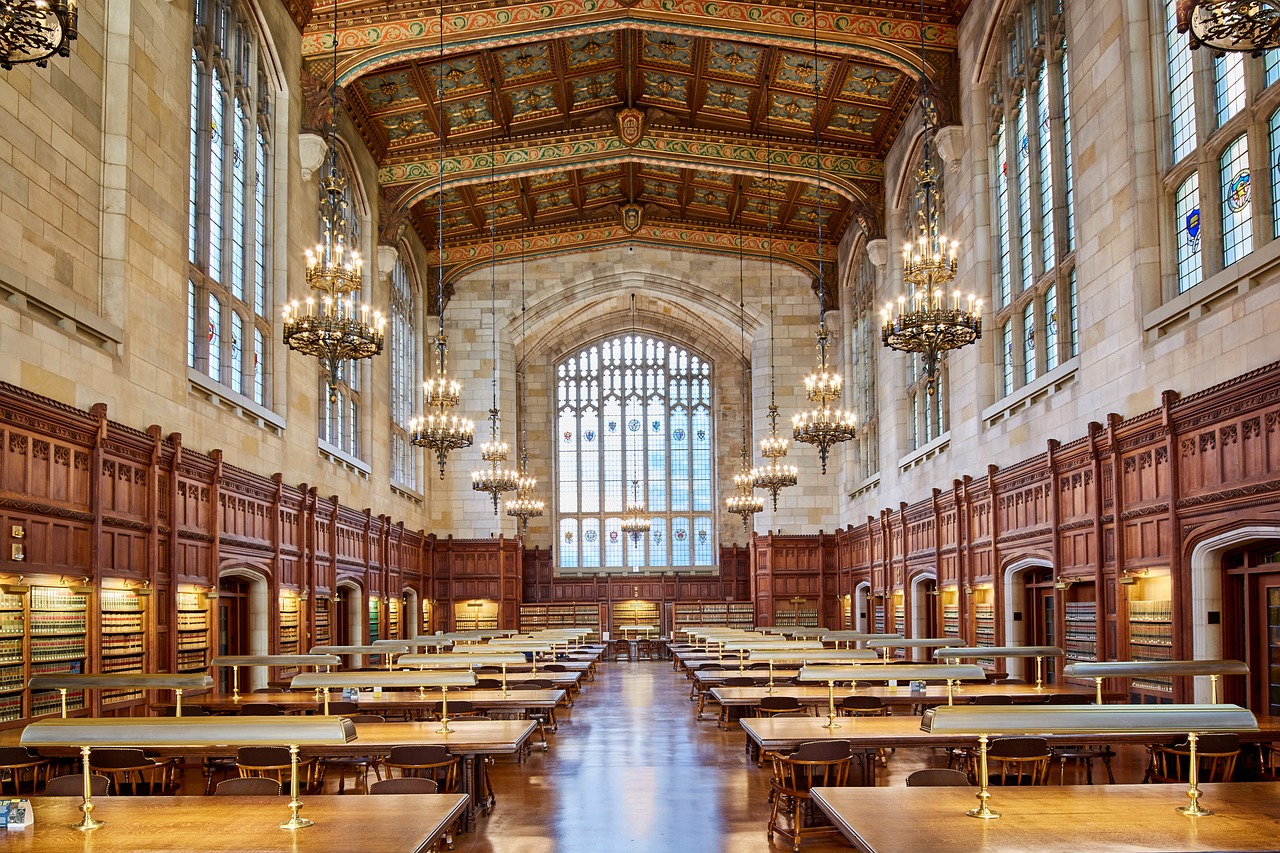Dube
opens
up
about
his
vision
for
Bulawayo’s
transformation,
the
challenges
of
balancing
politics
with
city
governance,
and
the
steps
taken
to
navigate
the
city’s
pressing
water
crisis.
He
also
shares
his
hopes
for
Bulawayo’s
return
to
its
former
glory
as
a
clean,
thriving
metropolis
and
the
legacy
he
aims
to
leave.
Here
is
an
excerpt
from
the
interview.
BN: Let’s
reflect
on
this
journey,
few
years
ago
you
were
tasked
to
handle
affairs
of the
second
largest
city
in
Zimbabwe
that
is
the
Great
City
of
Bulawayo,
how
has been
the
journey
so
far?
CD:
As
you
would
know
I
joined
the
City
of
Bulawayo
in
October
2016
and
I
would
like
to
say
that
the
past
few
years
have
been
an
interesting
journey.
I
knew
from
the
very
first
day
that
my
duty
as
Town
Clerk
will
not
be
an
easy
one
to
accomplish
as
it
required
me
to
visualize
the
direction
that
the
organisation
should
follow
and
achieve
during
my
term
of
office.
Leading
the
second
largest
City
is
no
easy
feat
and
my
wish
and
objectives
have
been
for
the
City
to
achieve
its
status
as
a
smart
City
and
as
a
leader
in
local
governance
excellence.
To
do
this,
my
task
has
been
to
re-engineer
Bulawayo
into
a
strong
international
brand
and
my
aim
has
been
to
achieve
this
through
the
City’s
vision
of
a
leading
smart,
transformative
City
by
2025.
The
course
of
the
journey
from
2016
to
date
has
been
to
try
and
do
this
by
ensuring
that
our
business
processes
have
productivity,
establish
efficient
financial
cycles
and
also
improve
the
quality
of
service.
It
has
been
a
hard
task,
because
at
the
present
moment,
the
City
of
Bulawayo
is
facing
huge
infrastructure
challenges
which
are
as
a
result
of
many
years
of
neglect.
This
has
been
due
to
the
lack
of
an
operations
and
maintenance
budget
and
at
the
moment
most
of
our
infrastructure
is
in
dire
need
of
repair.
In
the
water
sector,
this
has
been
coupled
by
subsequent
years
of
droughts
which
have
put
our
dams
in
a
very
poor
state.
During
my
time
as
Town
Clerk,
I
have
sought
to
try
and
ensure
that
we
attend
to
the
maintenance
gaps
in
water,
sanitation,
roads,
parks
and
all
other
services.
These
have
not
been
easy
due
to
the
city’s
precarious
financial
position
and
I
will
continue
to
strive
in
the
next
few
months
to
see
the
finalization
of
proposals
and
strategies
we
have
put
in
place.
To
be
able
to
do
all
these
aspects,
I
would
like
to
appreciate
Team
Bulawayo
that
has
been
hard
at
work
despite
the
shortage
of
resources
to
ensure
that
we
continue
to
grow
and
champion
Bulawayo’s
development.
BN: You
are
at
the
helm
of
the
City
of
Bulawayo
as
the
Town
Clerk
you
have
worked with
different
Councillors,
different
Mayors,
how
is
it
like
as
a
leader
working
with politicians?
CD: The
current
Council
is
the
third
that
I
have
worked
with.
I
joined
the
City
of
Bulawayo
from
Victoria
Falls
where
I
was
a
Town
Clerk
and
already
worked
with
Councillors,
Mayors
and
different
politicians.
I
think
what
one
needs
to
understand
in
such
a
position
is
their
role
and
responsibility
which
is
clearly
outlined
in
the
Urban
Councils
Act.
I
am
not
a
politician
and
as
such
I
serve
Bulawayo
as
a
public
servant.
I
have
worked
well
with
all
the
Councils
especially
the
Mayor
as
I
have
to
engage
the
office
of
the
Mayor
in
my
day-to-day
duties
as
a
leader
of
the
Council.
As
people
work
together
there
are
bound
to
be
clashes
and
one
of
the
lessons
I
have
learnt
is
to
ensure
that
where
there
have
been
challenges
or
clashes,
these
be
managed
immediately.
Through
continuous
leadership
development
and
trainings,
I
have
managed
to
facilitate
interactive
sessions
between
myself
and
policymakers
and
also
with
Council
management.
I
have
an
open
door
policy
where
I
encourage
Councillors
to
speak
to
me
as
the
Chief
Accounting
Officer
of
the
City
on
issues
that
may
arise
regarding
service
delivery.
With
the
current
Council
and
the
Mayor,
we
now
have
scheduled
regular
meetings
with
Chairpersons
and
Heads
of
Departments
where
we
also
thrash
out
service
delivery
issues
outside
the
Committee
meetings
for
the
attainment
of
the
City’s
vision.
These
have
ensured
that
Councillors
know
in
detail
the
challenges
we
face
as
staff
and
we
are
also
aware
of
the
issues
arising
in
each
of
their
wards
and
we
all
develop
the
necessary
solutions.
In
brief,
it
has
been
a
worthwhile
experience
where
I
have
learnt
a
lot.
BN: Bulawayo
has
been
facing
one
of
the
difficult
periods
that
is
the
issue
of
the
water crisis
and
you
have
been
in
charge
of
the
City’s
affairs
–
what
do
you
think
is
the ultimate
solution
for
Bulawayo’s
water
crisis.
CD: When
I
joined
the
City
of
Bulawayo
the
dams
were
low
(31.81%)
and
Council
had
resolved
to
implement
water
shedding.
At
the
present
moment,
our
dams
are
currently,
26.56%.
The
water
crisis
for
the
City
has
been
our
major
challenge
with
poor
rainfalls
experienced
over
the
years.
Despite
the
infrastructure
investment
which
was
done
under
the
Bulawayo
Water
and
Sewerage
Services
Improvement
(BWSSIP)
Project,
the
lack
of
water
in
our
dams
has
made
it
impossible
for
the
residents
to
feel
the
impact
of
the
great
infrastructure
work
done.
The
solution
to
the
City’s
water
crisis
is
to
build
additional
water
sources.
The
Government
of
Zimbabwe
is
working
on
the
Gwayi/
Shangani
Dam
which
is
expected
to
solve
the
City’s
Water
crisis.
Our
understanding
is
that
once
complete
the
dam
will
supply
the
City
with
about
220
Mega
litres
of
water
per
day
and
this
is
already
above
the
City’s
current
water
demand
of
165
ML/
day.
The
private
sector
proposal
for
the
Glass
Block
Dam
is
also
key
for
Bulawayo’s
water
challenges.
The
City
has
received
the
technical
and
financial
feasibility
studies
and
we
await
Cabinet
approval
and
the
construction
of
the
dam
which
is
also
estimated
to
bring
in
70ML/
day.
The
City
of
Bulawayo
is
also
looking
into
underground
water
reservoir
development
within
the
City
(Nketa/
Emganwini)
and
in
other
areas
such
as
Hope
Fountain.
We
have
had
private
sector
presentations
on
the
possible
underground
water
capabilities
and
we
are
also
planning
on
conducting
our
own
council-led
feasibility
studies
on
these
alternative
sources
of
water.
Above
all,
we
need
to
lower
our
non-revenue
water
and
plug
all
the
leaks
and
bursts
which
are
causing
water
losses
Citywide.
The
City
through
the
Ministry
of
Water
Technical
Committee
has
identified
short,
medium
and
long-term
solutions
which
will
also
contribute
to
this.
BN:
You
are
viewed
as
a
man
of
few
words,
always
quiet
and
you
have
been
able
to deliver
and
make
sure
Bulawayo
runs
smooth,
what
can
you
say
is
the
secret ingredient
to
running
such
a
big
city?
CD: The
secret
ingredient
is
having
a
team
that
has
Bulawayo’s
success
at
heart.
The
developments
taking
place
in
Bulawayo
cannot
be
attributed
to
me
alone
but
the
men
and
women
who
work
for
the
City
and
the
able
leadership
of
the
Mayor
and
his
Councillors.
The
City
of
Bulawayo’s
strategy
over
the
past
few
years
has
been
a
growth
strategy
focused
on
Renewal,
stabilisation
and
growth
and
in
that
regard,
we
have
focused
on
ensuring
recovery
and
growth
in
service
delivery.
We
are
focused
on
rehabilitating
infrastructure,
facilitating
smart
innovations
in
service
delivery,
and
engaging
residents
and
stakeholders.
Several
milestones
have
been
made
in
a
number
of
areas
over
the
years
in
service
delivery
such
as
water
and
sanitation
with
the
relaying
of
new
water
and
sewer
pipes,
strengthening
of
the
internal
systems
through
organizational
structural
alignment,
recruitment
of
the
much
needed
staff
and
improving
efficiency
and
effectiveness.
Continuous
strides
are
being
made
to
improve
revenue
collection
efficiency
so
as
to
enhance
service
delivery
and
financial
stability
of
the
City.
We
have
adopted
a
smart
city
concept
in
line
with
our
vision
of
being
a
leading
smart
and
transformative
City
by
2024.
These
activities
are
being
done
in
line
with
the
7
key
strategic
pillars
in
a
drive
to
ensure
strategic
growth.
These
are
as
follows
The
Pillars
Pillar
1
–
Sustainable
Institutional
Resources;
Pillar
2
–
Private
Sector
Led
Economic
Renewal;
Pillar
3
–
Renewed
Public
Infrastructure
&
Quality
Utilities;
Pillar
4
–
Excellent
Modernized
Social
Services
&
Safe
Secure
Environment;
Pillar
5
–
Good
governance,
Leadership
Excellence,
Resilient
Human
Capital;
Pillar
6
–
Service
Excellence:
Engaged
Empowered
&
Satisfied
Stakeholders;
and
Pillar
7-
Managing
the
Business
of
the
City.
BN: Bulawayo
was
once
of
the
cleanest
city,
I
once
saw
you
moving
around
City
Hall talking
to
Honda
fit
drivers
and
vendors
there
around
having
a
clean
working environment,
am
sure
you
have
walked
around
6th
Avenue
around
peak
hours and
seen
the
number
of
vendors
there,
how
can
Bulawayo
go
back
to
its
former glory
in
terms
of
being
cleaner
City?
CD: The
City
can
only
go
back
to
its
glory
days
of
being
a
cleaner
City
if
ALL
the
residents
of
the
City
and
all
visitors
decide
to
respect
our
streets
and
stop
littering.
It’s
a
collective
responsibility
to
keep
our
City
clean.
If
you
find
yourself
throwing
litter
on
the
ground
or
out
of
a
moving
vehicle,
then
you
are
part
of
the
problem.
It’s
everyone’s
role
and
responsibility
to
ensure
that
Bulawayo
becomes
cleaner.
Over
the
years,
people
have
adopted
a
culture
of
littering
and
we
need
to
remember
that
is
not
part
of
who
we
are
and
part
of
our
culture.
People
have
also
adopted
irresponsible
behaviour
such
as
fouling,
sleeping
on
the
streets
and
selling
from
undesignated
places.
The
City
did
face
its
challenges
with
refuse
collection
with
our
refuse
trucks
breaking
down
and
we
had
delays
in
collecting
refuse.
Despite
these
challenges,
efforts
were
made
to
ensure
timeous
refuse
collection
takes
place
in
conjunction
with
community
truck
owners.
These
cover
the
high
density
areas
and
parts
of
the
Central
Business
District.
The
other
parts
of
the
Central
Business
District
and
low
density
areas
are
covered
by
the
Council
refuse
compactors.
The
truckers
as
per
the
agreement
begin
after
06:30
hours
to
ensure
that
residents
are
not
disadvantaged.
With
timeous
refuse
collection
and
responsible
behavior,
the
City
of
Bulawayo
would
definitely
be
a
lot
cleaner.
BN:
Egodini
Mall
project,
it
was
opened
last
year,
2023,
thus
phase
1
we
saw
motorists
going
back
there
and
vendors
also
moving
back
but
we
still
see
some
vending
in
town
and
pirating
kombis
–
In
your
own
view
why
you
do
think
vendors
and
motorists
shy
away
from
going
to
Egodini?
CD: It’s
a
challenge
to
clearly
say
what
causes
vendors
and
kombis
to
shy
away
from
using
Egodini.
My
thoughts
are
that
we
have
become
people
who
prefer
lawlessness
over
order
and
adhering
to
laws.
The
use
of
Egodini
for
Kombi’s
in
line
with
the
Public
Transport
Policy,
the
City
By
laws
and
National
laws
and
also
paying
the
necessary
fees.
The
City
encourages
members
of
the
public
as
well
to
use
the
regulated
Termini
for
the
safety
of
the
public.
It
is
us
members
of
the
public
who
go
to
6th
Avenue
and
other
illegal
ranks.
If
we
all
made
our
way
to
the
regulated
ranks,
there
would
be
no
Kombis
going
to
the
illegal
sites.
My
concern
and
worry
is
on
our
behaviour
as
a
society,
as
we
don’t
need
the
police
to
chase
us
to
the
right
places
but
it
should
be
an
individual
introspection
of
whether
I
am
doing
the
right
thing.
Similarly,
informal
traders
follow
where
the
traffic
is
and
that
is
why
some
have
followed
the
illegal
kombis
to
6th
Avenue.
The
challenge
is
also
people
not
wanting
to
pay
for
the
licences
to
trade
in
designated
sites.
It
is
maybe
a
reflection
of
the
economic
challenges
we
face
as
a
nation.
The
economic
landscape
and
lack
of
employment
maybe
a
contributing
factor
as
well.
BN:
Now
let’s
move
to
infrastructure
around
the
City,
we
are
seeing
developments happening
in
the
CBD,
one
way
lanes
being
developed,
roads
being
rehabilitated, speak
to
us
more
around
this?
CD: The
City
of
Bulawayo
has
been
working
on
rehabilitating
the
Roads
City
wide.
Based
on
the
2016/17
road
condition
survey,
75%
of
the
City’s
road
network
was
reported
in
poor
condition
and
requiring
major
rehabilitation
works.
We
are
unable
to
ascertain
if
the
percentage
has
decreased
or
increased
over
the
years
without
another
road
condition
survey
to
compare
with.
These
surveys
are
done
at
national
level
and
are
supposed
to
be
conducted
every
5
years.
The
2016/17
road
condition
survey
remains
the
most
recent
survey,
though
now
outdated.
Approximately
US$700
million
is
required
to
bring
the
network
to
a
good
condition,
and
to
a
relatively
modest
road
system.
To
increase
the
City’s
road
network
to
good
by
15%
(360km)
in
the
next
5
years,
a
minimum
level
of
investment
of
US$15
million
per
annum
is
required.
Year
on
year,
budget
allocations
have
compared
unfavourably
with
funding
considered
inadequate
to
maintain
the
road
network.
The
current
level
of
funding
is
about
US$
1
million
per
year
which
is
around
6.7%
of
the
actual
required
levels.
This
means
that
the
City
will
not
be
able
to
catch
up
with
the
road
maintenance
needs
at
this
rate.
The
creation
of
one-way
lanes
has
been
to
improve
the
state
of
the
road
network.
The
Works
involve
reconstruction,
resurfacing,
reinstating
of
carriageway
markings
and
other
general
maintenance
cyclical
works.
The
works
are
to
prolong
the
life
of
the
road
pavements,
improve
road
safety,
traffic
flows
and
ride
quality.
BN:
TTI
is
the
talk
of
the
town
and
many
motorists
have
complained
about
this
parking system,
have
you
received
any
complaints
this
far
and
are
you
happy
with
the parking
system
set
in
place
and
the
public
at
times
ask
where
is
the
parking money
going,
maybe
give
us
a
clear
perspective
on
what
is
being
done
with
that revenue.
CD: The
Parking
Management
Project
is
a
partnership
between
the
City
of
Bulawayo
and
Tendy
Three
Investments
(TTI)
(Pvt)
Ltd.
This
project
aims
to
bring
about
a
world-class
parking
management
solution
for
the
City
of
Bulawayo.
The
city
entered
into
this
partnership
because
previously
we
were
operating
a
semi-computerised
parking
management
system
whereby
motorists
purchased
computer-recorded
parking
disks
[booklets]
from
the
Revenue
Hall
and
would
then
display
them
on
vehicle
windscreens
when
in
parking
bays.
Monitoring
was
done
manually
by
Parking
Assistants
manning
the
parking
bays
around
the
City
who
checked
the
availability
and
validity
of
parking
disks
displayed
by
motorists.
Tickets
[fines]
were
issued
to
the
motorists
who
failed
to
display
a
valid
parking
disk.
However,
this
parking
management
system
had
numerous
challenges
chiefly
being
that
the
computer
application
in
use,
only
worked
in
the
office
and
was
not
available
to
those
that
were
in
the
field
to
check
the
outstanding
vehicle
tickets
and
for
online
payment
in
parking
bays.
Another
challenge
was
inadequate
staffing
as
there
were
few
Parking
Assistants
to
fully
manage
the
parking
bays
city
wide.
This
had
resulted
in
inadequate
monitoring
and
loss
of
revenue
as
vehicles
overstayed
in
parking
bays
as
well
as
misuse
of
parking
bays
by
car
cleaners,
illegal
money
exchanges,
mechanics
and
public
transporters.
Council
due
to
lack
of
funding
and
capacity
sought
to
engage
an
Investor
who
was
willing
to
go
into
partnership
with
Council
on
a
Public
Private
Partnership
(PPP)
arrangement.
The
PPP
arrangement
chosen
was
the
Build,
Operate
and
Transfer.
There
are
a
number
of
benefits
of
the
project
which
include;
Improved
revenue
collection.
Decongest
the
City.
Reduce
carbon
emissions
and
impact
of
climate
change
in
accordance
with
the
Paris
Agreement.
Restore
“smart
city”
image
of
the
city.
The
City
of
Bulawayo
is
aware
of
the
complaints
that
have
been
received
and
the
parking
funds
have
been
used
to
improve
the
road
network
in
the
City.
Most
of
the
ongoing
road
rehabilitation
projects
in
the
Central
Business
District
have
been
funded
by
the
parking
fees
for
example,
George
Silundika
Street.
BN:
Your
contract
just
got
renewed
for
another
year
as
the
Town
Clerk
of
Bulawayo,you
have
served
our
city
well,
and
how
should
the
residents
remember
when
you
retire?
CD: My
vision
when
I
joined
the
City
of
Bulawayo
was
to
create
a
city
of
integrity
and
excellent
service
delivery.
It
has
not
been
easy
to
do
this
with
the
financial
and
resource
challenges
Council
faces
but
my
hope
is
that
all
the
efforts
that
I
have
made
to
enhance
and
improve
service
delivery
will
be
recognized
in
the
years
to
come.
I
hope
I
will
be
remembered
for
re-engineering
business
processes
in
the
City
and
improving
organisational
financial
soundness,
enhanced
public
image
and
integrity.




 Olga
Olga
 Lisa
Lisa









